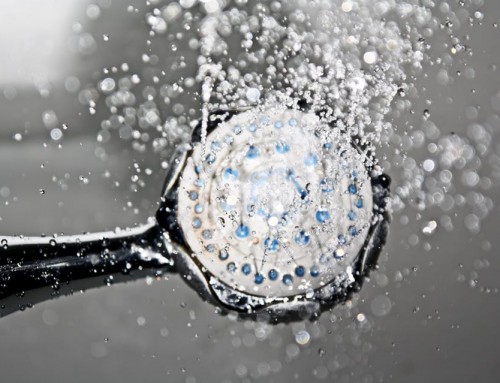Have you noticed a pattern of behavior in your spouse after they’ve been drinking?
Perhaps they’re becoming unpredictable or unreliable. Maybe they have even started to hide or lie about their drinking habits.
Behavior like this takes a toll on both your relationship and your personal wellbeing. Living with someone who may have an addiction problem is stressful and emotionally draining.
Luckily, there are steps you can take to support your spouse and also take care of yourself.
Experts call alcoholism “the family disease” because it affects everyone in the household. Read on to learn what to do when you’re married to an alcoholic.
What Is Alcohol Abuse?
There’s certainly a difference between enjoying some wine and having an addiction. Even being a heavy drinker is a different classification from an alcoholic.
Similarly, you can be an alcoholic and still hold a job and be “high-functioning.”
Then what exactly qualifies someone as suffering from Alcohol Use Disorder (AUD)?
Experts categorize people with AUD as someone who suffers from chronic, compulsive alcohol abuse. People with AUD experience a loss of control over their intake. They also are put in a negative emotional state when not drinking.
Does that sound familiar to you? If so there are some signs to look for that indicate you might be married to an alcoholic.
Signs That You’re Married to an Alcoholic
Have you found alcohol bottles in unusual places recently? Maybe inside their car or in a drawer in their office?
Another sign is if they have adopted a set time of day where they like to drink. Do they become agitated if something gets in the way of them drinking at that time?
Regularly drinking by themselves and frequently blacking out are other signals. Finally, is drinking getting in the way of their work, responsibilities, and relationships? That’s a sure sign of AUD.
How an Alcoholic Can Affect Their Spouse
Living with someone with an addiction will directly affect you and your marriage with the addict.
At worst, an alcoholic might be physically abusive under the influence. If you ever fear for your safety, it’s important to get help for you and your kids.
Even if you aren’t in danger, living with an alcoholic will take an emotional toll. You might blame yourself for their behavior.
You probably find yourself spending time and energy trying to control their drinking. Perhaps you often have to cover up their behavior or make excuses for them to yourself and others.
You must remember that this is not your responsibility, even as their spouse. You can bring their behavior to their attention, but it’s up to them to accept help.
Staging an Intervention
If you’re married to an alcoholic, one option is to have an intervention. This could be the next step after talking to your spouse about your concerns and seeing no change.
This is an emotionally difficult thing to do. You should learn how to stage an intervention first, so you have the best chance of success.
Talking to a professional first would be helpful. Many people elect to have a professional in the room guiding the intervention.
There are different types of intervention styles you can try. But, the most important thing is to set expectations and consequences.
If your expectation is that they seek treatment, there will be consequences if they refuse.
Treatment Options
There are both inpatient and outpatient options for treatment.
Outpatient treatment allows for the person to continue their daily responsibilities, like going to work. This treatment could include a 12-step program, group or one-on-one therapy.
For inpatient treatment, they would be going to a traditional rehab center. They could be there anywhere from a few weeks to a few months.
This is a good option for someone who has tried outpatient treatment and relapsed.
After choosing the best treatment method, you’re probably wondering how you can be of support to your spouse.
How You Can Be Supportive
When you’re married to an alcoholic, you have to walk the line between supporting and enabling.
Being supportive during and after treatment is important. You should give them the validation that you believe in them. Maybe you’ll have to pick up some of the financial slack while they’re away in rehab.
You can be supportive by not drinking around them. Being aware of what might trigger them to drink is helpful. When a trigger arises, you can help steer them towards other coping methods besides drinking.
Support does not mean letting them get away with bad behavior. That means not making excuses for them.
Not being an enabler to their drinking can be difficult. It can be helpful to get professional support for yourself to learn how to set boundaries.
Any extra support from professionals or loved ones is essential to accept during this time. While you help your spouse, don’t forget about taking care of yourself.
Support for Yourself and Your Children
First, don’t be afraid of being honest with loved ones about what’s happening in your life. You might feel as though your problems are a burden. But, remember, people who love you want to help!
Keeping your feelings inside will only make this process more difficult.
Consider getting help from a therapist and joining a support group. Groups like Al-Anon specialize in helping people who have alcoholic family members.
Be sure to find some kind of support for your children. Many parents think that their children don’t pick up on a parent’s alcohol abuse. However, you’d be surprised to realize how much even small children notice.
Know That You Aren’t Alone
Dealing with an alcoholic spouse is difficult. But, there are many other women out there going through the same thing you are. It isn’t your fault, and you can’t make someone change if they aren’t willing to do the work.
Are you interested in learning some ways to cope with the stress you’re under? Check out this article, “Top 10 Best Stress Relief Ideas for Women” and leave us a comment if you have any thoughts or ideas.











